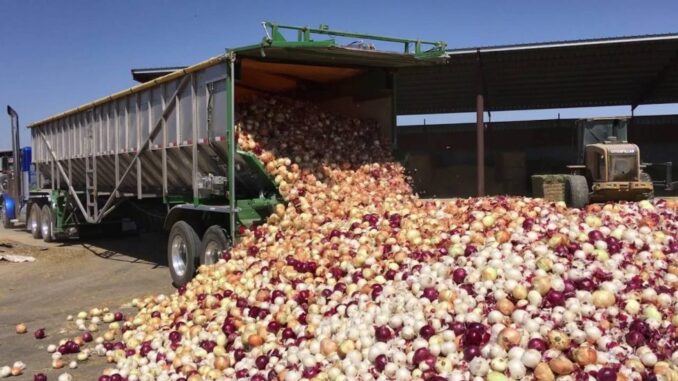
Prices of fresh produce and food grains have skyrocketed in the southern states as traders from the north have been restrained from moving produce southwards.
Residents of Oyo State, where the Shasa market crisis climaxed with the death of over 20 persons, have been paying more for smaller quantities of fresh produce and food crops as suppliers temporarily shift suppliest to Cameroon, Niger Republic and Chad following the crisis.
The same situation applies in almost all states in the south as prices temporarily get out of the reach of average Nigerians.
Investigations revealed that fresh fruits and vegetables such as tomatoes, onions, carrots, and food grains are in short supply from the north, forcing prices up.
Reports also indicated that suppliers were stranded in-between Niger and Kwara states as they were prevented from moving food and animals towards the south on instructions of their unions.
When contacted on phone, Malam Bala, one of the suppliers of produce to the market in Ibadan, said he was holding a meeting in Abuja on the crisis, and a press briefing would be held later. Following the meeting, Miyetti Allah Breeders Association and other unions demanded almost N500 billion from the Federal Government as compensation or they would down tools.
Adeleke Adeyemi, who sells tomato, said before the Shasha incident, the price of a bag was N7,000 but now N10,000.
Ogunmola Bunmi, who is also a pepper seller, said Shasha crisis affected the price of pepper. “Before the issue, a basket of tomato was N7,000 but now N10,000. We still face difficulties since the Shasha incident.”
Mrs Blessing Abu from Bauchi State, told The Guardian that a basket of pepper sold for N8,000 is now over N11,000. One sack of pepper was N10,000, but is now N25,000. Even the price of bell pepper has equally gone up.
However, Alli Idris, who sells onions, said Shasha incident did not have effect on the price, as a bag was still N12,000 as of the time of filing the report, while some were selling it at N14,000. The small bag remains at N7,000 or N8,000.
In Lagos, prices of grains, vegetable and processed foods – both locally made and standardized – have skyrocketed amid foreign exchange crisis.
Samuel Ajeleye, an accountant working in Lagos, lamented to The Guardian that the high cost of food had been eating deep into average incomes of most Lagos residents, and recent crisis of herders and escalating insecurity had aggravated the situation.
He called on the Federal Government, States and local government authorities to fashion ways around insecurity so farmers could cultivate crops in any part of the country without the fear of being attacked.
END

Be the first to comment